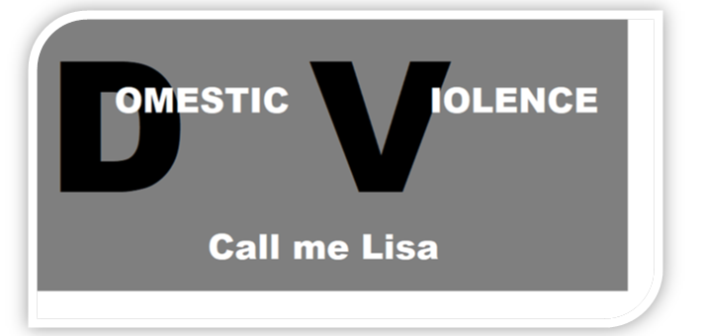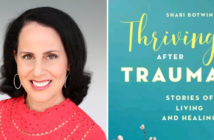March 4, 2015
Original post April 1, 2011
Ines Rivera
Investigative Reporter
Living the Life
“We have a fine group of advocates who come to the legislator every year and really fight to get these bills passed. Some of the things Senator Forehand is working on is to strengthen the penalties for violating a peace order. This has to do with people and dating relationships — a boy on campus harassing a girl or stranger who is bothering you. These can be very dangerous relationships.”
— Kathy Dunn, legislative aide/spokesperson for Maryland State Senator Jennie Forehand
A gentle woman unlocks the door. She takes the elevator up to an apartment she shares with two other women. She is a silent victim of domestic violence. Lisa Adelakun is slowly getting back on her feet. It has been several years of difficult struggle, but with the help of N Street Village, she is thriving. The Washington, D.C. based non-profit organization provides services to an estimated “900 women facing homelessness, poverty and the related challenges of mental illness, addiction and chronic health problems.”
Approaching the apartment, she passes two paintings of doves. The birds are giants; their awesome size alone is inspiring. She says a woman from of the group home painted the doves. She then enters the apartment. It is quiet, adorned with olive colored sofas, a television and a few chairs. On a small dining table stands a porcelain elephant. A spider plant sits on the windowsill overlooking the street. Simple and peaceful, this small apartment has offered a stability and safety Adelakun has needed; it is a sharp contrast to the volatile environment she lived in for two years.
Adelakun grew up in the District with her mother and five siblings. She states: “By the time I was born my mother and father were separated. I didn’t really have that father figure. He came around, but in general, I didn’t have it. My mother couldn’t afford the rent, so I was forced to move every year.” She remembers that when she was a child, she had dreams of becoming a nurse. She admits that today she is a recovering drug addict.
In 2005, Adelakun married a Nigerian immigrant. “He had to work for his immigration.” She pauses. “It seemed like he got his immigration and [then]the marriage turned real sour.” Shortly after the marriage began, Adelakun’s husband started verbally and emotionally abusing her. “I was called names. He made me feel inferior. He started dating other women.” The verbal and emotional abuse quickly escalated to physical abuse.
The first time Adelakun’s husband physically assaulted her, he choked her until she was nearly unconscious. She recalls: “I had just done two double shifts. He wanted me to fix him something to eat. There was something in the refrigerator already cooked. I told him that he could warm that up, because I was very tired. He started arguing. The next thing I know we were tussling. He choked me real hard. I couldn’t breathe.” Despite the incident and her husband’s arrest, Adelakun continued the relationship. “I was thinking about my marriage. We had just gotten married. I went down there and got him out. Since I wasn’t used to it, I chalked it up as being a misunderstanding. Slowly, it started happening constantly.”
In 2010, the DC Metropolitan Police Department received more than 31,000 domestic-related phone calls, literally one call every 17 minutes. The Domestic Violence Intake Centers in DC served 5,465 people – a 15% increase since 2009. The numbers are made even more daunting by the fact that most cases of domestic violence are never reported, according to The National Coalition Against Domestic Violence.
In Maryland, State Senator Jennie Forehand, a well-known advocate for women, has vigorously fought domestic violence and is currently co-sponsoring a bill that will further strengthen laws to protect women in such cases. “Over the last ten years or so, we’ve come a long way, protecting spouses in abusive relationships, but there is a lot more that needs to be done,” says Kathy Dunn, Forehand’s legislative aide and spokesperson. “We have a fine group of advocates who come to the legislator every year and really fight to get these bills passed. Some of the things Senator Forehand is working on is to strengthen the penalties for violating a peace order. This has to do with people and dating relationships — a boy on campus harassing a girl or stranger who is bothering you. These can be very dangerous relationships,” Dunn stresses. “For example, a girl who is being harassed by someone who is in her class or lives in her dorm. Right now, [peace orders]last six months. We’re trying to get that extended to a full year. We think the bill will go through this year…One other bill that we are working on is to add to the legal definition of a serious, physical injury and this is for the case of strangulation.” The proposed legislation would include strangulation in a first degree assault statute. This bill would have benefited Adelakun, however, she chose to stay in the relationship after strangulation by her husband. Unfortunately, women often stay in abusive relationships for many reasons: denial, embarrassment, shame, fear, financial dependency, isolation, limited housing options, low self esteem or self-blame.
Adelakun stayed in her relationship partially out of fear, which sent her spiraling into depression. She recalls her husband threatening to kill her. At one point, she feared he would poison her: “I would never go to sleep before him. I’d wake up in the middle of the night just to make sure he didn’t do anything to me. It got so bad that I wouldn’t want to eat leftover food. If he didn’t eat it, then I didn’t eat it. That’s how scared I was.”
The relationship eventually cost Adelakun her job, leaving her with little means of supporting herself. Despite encouragement from her sister and daughter, she did not seek help. “When you don’t have a job or money to go forward with your life, you grow a co-dependency on that person.” She also adds that her daughter had four kids of her own to worry about.
Adelakun became more and more isolated. Her husband controlled her, dictating when she could watch television, where she went and what she wore. “He would [go on]the job and then leave me in the house. He wouldn’t let me go with him. I’d lost my job. I didn’t have a car. I was stuck out in Greenbelt at the time. I just stayed in the house and grew depressed.”
Feeling hopeless, Adelakun turned to drugs: marijuana, PCP, crack-cocaine and alcohol. “He would come in and start arguing about something. He would always find something to argue about. We had pictures on the wall. He would hit the pictures. He would put holes in the walls. I couldn’t handle it, so I turned to drugs. They comforted me. I did it so I’d feel numb.”
In 2008, Adelakun reached her breaking point. It was early in the morning, and she was fixing something to eat. “He kept cutting the lights off on me,” she recalls. In another attempt to manipulate and control her, Adelakun’s husband took their television, placing it another room to make sure she could not watch it. Feeling degraded, Adelakun finally “broke down” and faced the painful reality of her marriage.
“I moved in with my daughter,” she says. “But by that time I felt hopeless – not having a job, living with my daughter. My drug habit — I think — started affecting the children. My sister asked me did I think I need help. I told her, ‘Yes.’”
Adelakun spent about three weeks in rehab at the DC General Hospital and three months in the Regional Addiction Prevention program where she says, “I kind of found myself.” On medication for both depression and schizophrenia, she saw a psychiatrist regularly. “I started really talking about my problems, dealing with the domestic abuse.” After eighteen months in a recovery house, she found housing through N Street Village. She’s been living there since 2009.
The District’s programs that provide victim services will possibly be facing financial difficulty in 2012 due to the city’s $600 million budget deficit. This comes at a time when 2010 Domestic Violence Counts: A 24-Hour Census of Domestic Violence Shelters and Services found that 82% of these programs lacked adequate funding for services. In Maryland and Virginia, almost half of them lacked funding.
Adelakun’s daughter and sister were vital to her recovery, but she credits N Street Village as an enormous source of support. “If it had been a program where they just helped me with my addiction and sent me back out on the street, I think I would’ve used again. But to help you, then continue to help you on the living arrangement, gave me some hope, some clarity to know what direction I wanted to go in.” Through its WISE (Working in Supportive Senior Environments) Program, the organization trained Adelakun, who was able to land a job and return to working with seniors.
She describes her healing process: “I went to different classes, to therapy for six months. I see my psych. I was able to express things that I could never talk about, for the shame and guilt that I feel for things that happened to me.” Through therapy, not only has Adelakun tackled the painful memory of her marriage and addiction, but also another trauma.
“I was 18 or 19. He had rigged the door so you could only open it from the outside. I had to really beg for my life. He took me behind the [high]school. It was very dark. He raped me. I pretended to like him and asked him for his number, so he wouldn’t kill me. When I got home, I stayed in the shower crying. I didn’t tell anybody. I felt ashamed and dirty. I felt like it was my fault.”
Adelakun gets startled if someone touches her unexpectedly. “Even when I had friends, if they reached out and touched me, I would jump. It was devastating for someone to reach out and touch me, and I wasn’t aware of it. I only found out after therapy that I was doing that because of that.” After two years, she is still afraid to date, but has grown to trust individuals helping her in her recovery. She’s also mended her relationship with her father and is in the process of filing for divorce. Working part-time on the weekends, she hopes to gain full-time work and get her own place soon.
She sighs, and then looks upward. Her eyes are tired. “It messes with you. It damages you. Going through therapy, I was able to overcome it some.” Taking it one day at a time, she explains: “It’s easy for me to do short-term goals. I’m trying to save money. I pay rent, buy my own food.” Adelakun is also working towards a dream she has had since she was a girl. “I’ve started preparing to go to school for my nursing license,” she says. For a moment, she smiles.
If you are a victim of domestic violence, there is help. Below are resources:
National Domestic Violence Hotline – 1800-799-SAFE
N Street Village – 202-939-2076
House of Ruth – 24 Hour Hotline – 202-667-7001
My Sister’s Place – 202-529-5991
DC Shelter Hotline – 1800-535-7252
Domestic Violence Unit – DC – 202-727-7137
Doorways for Women and Families (Northern VA) – 703-237-0881
Maryland Network Against Domestic Violence – 1800-MD-HELPS or 301-352-4574




